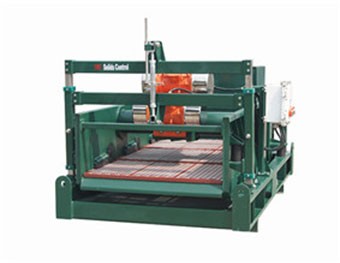Solid Control Services Ensuring Efficiency and Safety in Drilling Operations
In the oil and gas industry, solid control services play a crucial role in maintaining the integrity of drilling operations. These services focus on the management and treatment of drilling fluids, also known as mud, which are essential for the safe and efficient extraction of hydrocarbons. Proper solid control is vital not only for operational effectiveness but also for environmental protection and compliance with industry regulations.
The Importance of Solid Control
Drilling fluid serves multiple purposes during the drilling process. It is used to cool and lubricate the drill bit, transport cuttings to the surface, stabilize the wellbore, and prevent any influx of formation fluids. However, as drilling progresses, the fluid becomes contaminated with solid particles, which can hinder its performance. Effective solid control ensures that these contaminants are removed, and the drilling fluid remains within the required specifications.
Solid control services involve several techniques and equipment designed to separate solids from the drilling fluid. These include shale shakers, desanders, desilters, and centrifuges. Each piece of equipment plays a unique role in the solid control process. For example, shale shakers utilize screens to separate larger solids, while centrifuges use centrifugal force to remove finer particles. The combination of these technologies allows for the efficient recycling of drilling fluids, reducing waste and operational costs.
Advantages of Implementing Solid Control Services
1. Cost Efficiency By recycling drilling fluids, companies can significantly reduce the amount of new fluid required for operations, leading to substantial cost savings. Additionally, effective solid control minimizes the disposal costs associated with waste management.
2. Enhanced Drilling Performance High-quality drilling fluid is essential for optimal drilling performance. Effective solid control services ensure that the fluid maintains its properties, leading to increased rate of penetration (ROP) and reduced downtime.
solid control services
3. Environmental Protection In an industry under increasing scrutiny regarding environmental practices, solid control services help minimize the environmental impact of drilling operations. Proper management of drilling waste reduces the risk of contamination to soil and water sources, aiding compliance with environmental regulations.
4. Safety Improvements Maintaining the correct properties of drilling fluids is critical for well control. Solid control services help to prevent issues such as wellbore instability and blowouts, enhancing overall safety for personnel and equipment.
The Future of Solid Control Services
Advancements in technology continue to reshape the landscape of solid control services. Automated systems and real-time monitoring solutions are being integrated into drilling operations, allowing for more precise control over the drilling fluid. These innovations lead to improved efficiency and responsiveness to changing conditions in the well.
Moreover, the growing emphasis on sustainability in the oil and gas sector drives investment in more eco-friendly solid control solutions. Companies are exploring biodegradable drilling fluids and advanced waste treatment methods to further diminish their environmental footprint.
Conclusion
Solid control services are an indispensable component of modern drilling operations, impacting efficiency, safety, and environmental stewardship. As the industry continues to evolve, the integration of new technologies and sustainable practices will enhance the effectiveness of these services. In an era where operational excellence is paramount, companies that prioritize solid control will be better positioned to navigate the challenges ahead, ensuring their success in the competitive oil and gas landscape. Investing in solid control services is not just a tactical decision; it is a strategic imperative for the future of drilling operations.
 Linear Motion Shale Shaker In Drilling Rig
Linear Motion Shale Shaker In Drilling Rig  Oilfield Mud Cleaner
Oilfield Mud Cleaner  Drilling Fluid Decanter Centrifuge
Drilling Fluid Decanter Centrifuge  Drilling Mud Desander
Drilling Mud Desander  Hydrocyclone Desilter
Hydrocyclone Desilter  Centrifugal Pump/Centrifugal Mud Pump
Centrifugal Pump/Centrifugal Mud Pump  Shear Pump
Shear Pump  Jet Mud Mixer
Jet Mud Mixer  Horizontal Mud Agitator
Horizontal Mud Agitator  Constant Pressure Drilling Fluid Mud Gas Separator
Constant Pressure Drilling Fluid Mud Gas Separator  Mud Gun
Mud Gun  Mud Tank
Mud Tank  Solids Control System Vacuum Degasser
Solids Control System Vacuum Degasser  Flare Ignition Device
Flare Ignition Device  Diesel Tank
Diesel Tank  Submersible Slurry Pump
Submersible Slurry Pump 






































